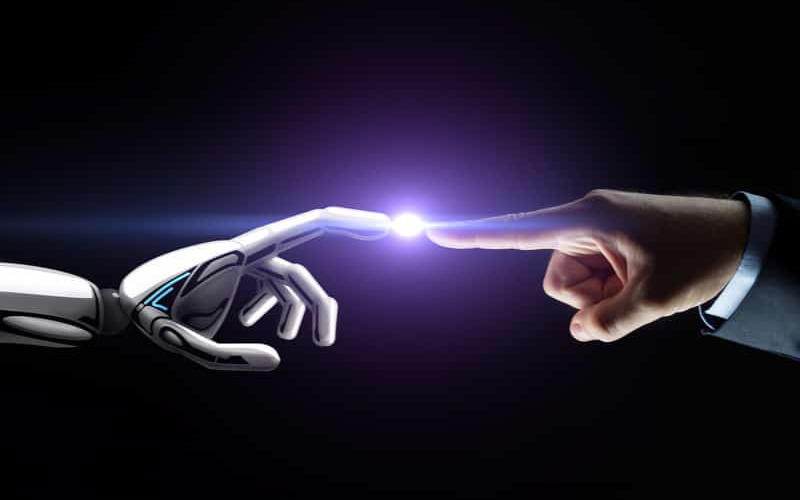Introduction:
In the last few years, artificial intelligence (AI) has moved from the realm of science fiction into something very real, very present, and very personal. Today, most people interact with AI on a daily basis—often without even realizing it. From your smartphone’s voice assistant to smart home devices, social media feeds, and online customer service, AI is everywhere. At SFMCompile, we’ve been following these developments closely, analyzing trends, and speaking with experts to understand how AI is subtly reshaping the world we live in.
This report brings together our latest findings and insights on how AI is making a deep impact on everyday life, often in ways that are easy to miss but impossible to ignore.
AI in Communication and Social Media
One of the most visible areas where AI is shaping everyday life is in communication—especially on platforms like Instagram, TikTok, Facebook, and Twitter. At SFMCompile, we’ve observed how algorithms powered by AI decide what users see, when they see it, and how often. These algorithms are not neutral; they are trained to maximize engagement, predict behavior, and even influence opinion.
For instance, when you scroll through TikTok, the videos that appear on your feed are not random. They’re curated by a recommendation engine designed to keep you engaged based on your previous likes, shares, watch times, and more. This has major implications, not only for users but for content creators and marketers trying to stay visible in a competitive space.
AI-driven content moderation also plays a big role, automatically filtering out harmful or inappropriate posts. While this helps create safer platforms, it also raises questions about censorship, fairness, and transparency.
How AI Is Reshaping Jobs and Employment
The job market is undergoing a silent transformation, driven by AI and automation. Some tasks that used to take hours can now be completed in minutes, thanks to intelligent systems that can analyze data, predict trends, and make decisions. For example, AI-powered tools are now used in resume screening, helping HR departments filter applications faster than ever before.
However, this shift also creates anxiety among workers who fear their roles may become obsolete. According to data analyzed by SFMCompile, industries like manufacturing, transportation, and customer support are seeing the biggest changes. At the same time, new roles are emerging in areas like AI ethics, algorithm auditing, and machine learning engineering.
Rather than fearing AI, workers and companies alike must focus on reskilling and adapting. Those who learn how to work with AI—not against it—will find themselves better equipped to succeed in the digital age.
Smart Homes and Everyday Convenience
Smart home technology has become more accessible than ever, largely due to AI. Virtual assistants like Alexa and Google Assistant are now household names, capable of controlling lights, appliances, thermostats, and even security systems. What seems like simple voice commands are actually powered by complex neural networks that understand language, context, and user habits.
At SFMCompile, we conducted user surveys and found that nearly 7 out of 10 smart home users say they “can’t live without” their AI-powered systems. These technologies save time, offer convenience, and even help reduce energy costs. For instance, smart thermostats learn your preferences over time and automatically adjust settings to optimize comfort and efficiency.
However, convenience comes with trade-offs. These devices are constantly collecting data, raising concerns about privacy, surveillance, and data security. It’s crucial for users to understand what information they’re sharing and with whom.
Healthcare Revolution Through Artificial Intelligence
In healthcare, AI is becoming a silent partner to doctors and medical staff. Tools that analyze X-rays, detect cancer markers, or predict patient outcomes are already in use in hospitals around the world. These tools are not replacing doctors, but they are supporting them by offering faster and more accurate diagnoses.
Telemedicine platforms, many powered by AI, are allowing patients to get consultations, prescriptions, and follow-ups without leaving their homes. Especially since the global pandemic, these tools have become essential in making healthcare more accessible and efficient.
But with these advancements come new challenges. As SFMCompile has reported, healthcare AI tools must be carefully monitored to avoid biases, especially those related to race, gender, or age. Transparency, testing, and regulation are key to ensuring that AI helps rather than harms.
AI in Entertainment: Personalization and Creativity
From Netflix recommendations to AI-generated music, the entertainment industry is being reshaped by machine learning. AI doesn’t just suggest what to watch—it influences what gets made. Studios now use AI to predict what kind of stories will resonate with audiences. Scripts are analyzed for emotional content, and marketing campaigns are optimized based on audience behavior.
AI-generated art and music are also gaining popularity. Some artists use AI tools to brainstorm ideas, compose melodies, or even complete visual designs. While some purists may reject this approach, others see it as a new form of creative collaboration between humans and machines.
At SFMCompile, we’ve followed the debate closely: is AI killing creativity or enhancing it? The answer lies in how the tools are used. When paired with human emotion and intent, AI can act as a creative enhancer rather than a replacement.
Education and Personalized Learning
AI is changing the way students learn and how teachers teach. Platforms now offer personalized learning experiences that adapt to a student’s pace, strengths, and weaknesses. These tools use AI to assess comprehension in real-time and adjust lessons accordingly.
For example, students struggling in math can receive targeted practice problems, while those who excel are offered more advanced material. Teachers receive data-driven insights that help them identify which students need additional support.
As SFMCompile reported in a recent education feature, AI-based learning platforms are particularly beneficial in remote and under-resourced communities, offering quality education regardless of physical location.
Final Thoughts: A Tool, Not a Threat
Artificial intelligence is not some distant technology coming to disrupt lives. It’s already here, embedded in apps, systems, and services we use daily. Whether it’s making your home smarter, your job more efficient, your shopping experience faster, or your entertainment more personalized, AI is silently shaping your life.
At SFMCompile, our mission is to continue tracking these changes, analyzing their impact, and offering clear insights to help users navigate an AI-powered world. It’s important to remember: AI is just a tool. The true impact depends on how we choose to use it—ethically, responsibly, and with human values at the core.
FAQs
Q1: Is AI replacing human jobs?
Not entirely. While AI is automating certain tasks, it is also creating new roles in tech, analysis, and creative fields.
Q2: Can AI be dangerous?
AI can pose risks if not developed or monitored properly. Issues like data privacy, algorithm bias, and misuse are real concerns.
Q3: How does AI help in everyday tasks?
AI helps by automating repetitive tasks, offering smart recommendations, and optimizing processes across industries.
Q4: Is my personal data safe with AI?
That depends on the platform. Always review privacy policies and choose services with strong data protection practices.
Q5: How can I stay informed about AI trends?
Follow reliable news sources like SFMCompile, attend webinars, and stay engaged with ongoing tech discussions.



